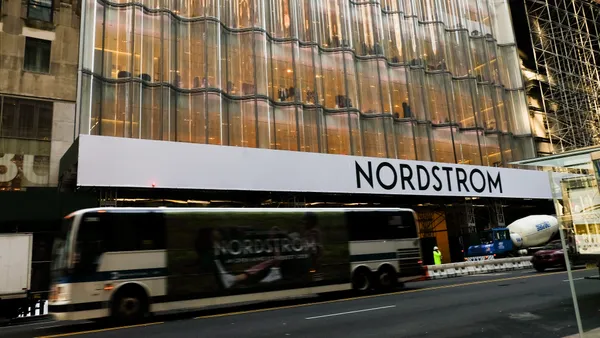Dive Brief:
-
A website called FACE, for the “Former and Current Employees of Amazon,” has posted an open letter to founder-CEO Jeff Bezos and invited current and former employees to add their experiences with the working conditions at Amazon.
-
The site says it is building on a story in the New York Times last year that reported on a brutal working environment for the company’s white-collar workforce.
-
Amazon is used to being a leader when it comes to retail innovations, but when it comes to its work environment, it appears to be playing catch-up. Much of the criticism on the FACE website includes attacks and suggestions for improvement for the company’s employee feedback systems for management.
Dive Insight:
Last year's New York Times article launched a tit-for-tat argument between the paper’s top editor and Amazon, and led Bezos to launch his own investigation into the charges against Amazon in the piece.
“I don’t recognize this Amazon and I very much hope you don’t, either,” he wrote in his email to employees about that report.
The troubling details in the New York Times rang a bell with other accounts of the work environment elsewhere at Amazon, though. Brad Stone, author of the 2013 book "The Everything Store: Jeff Bezos and the Age of Amazon," (which famously earned a one-star review on Amazon itself from Bezos' wife), unearthed many of the same issues in the company.
Amazon’s approach is one of constant innovation and disruption, which includes finding efficiencies in various systems, particularly in fulfillment and delivery, in order to keep prices low for consumers while providing them with fast shipping and premium customer service.
It's one thing to lean on creativity and technology for those efforts. But when “efficiencies” are wrung from employees in the form of inadequate pay, overly long hours, or brutal working conditions, it’s not so much a matter of impressive innovation but more one of unfair treatment of workers, a quite old-fashioned practice that businesses have at least attempted to do for eons.
Consumers frown upon unfair treatment of workers, whether its poor pay and working conditions in overseas garment factories or the low pay and scheduling practices that make it difficult for retail workers here to make a living. Until recently such issues tended to persist because they didn’t seem to affect sales. But more retailers in the U.S. these days are under pressure from enforcement agencies to change their scheduling policies. And Wal-Mart, which has developed a reputation for its low pay and poor working conditions, is spending a billion dollars to raise its hourly wage and improve its scheduling and training for workers.
In its appeal to Bezos, the workers communicating via the FACE website asked the company to improve its culture and said that it would consider a move to formally organize if their effort proved futile.
“If you choose to ignore us and continue to deny the clear facts of what is going on in your company, we will initiate a labor movement to regain our rights through unionization as was necessary for generations of mistreated employees before us,” the open letter reads. “Alternatively, your growing presence as one of the largest multinational employers in the world probably justifies our seeking wide-ranging legislative action from our political representatives, so that we set the right labor standards for the entire industry.”













